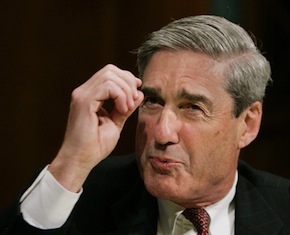It’s never enough, is it?
Speaking to the Senate Judiciary Committee today, FBI Chief Robert Mueller lamented that the current level of Internet surveillance, now known to be enormously broad and capturing huge amounts of ordinary Americans’ day-to-day emails, is insufficient for his goals.
 Direct server access to the PRISM Nine, along with all the other indirect surveillance available to the administration, and a FISA court warrant system that signs off on literally every single request, no matter how asinine, covers an awful lot of ground. But conceivably two people could still communicate in other ways online without it being hoovered up as a matter of course.
Direct server access to the PRISM Nine, along with all the other indirect surveillance available to the administration, and a FISA court warrant system that signs off on literally every single request, no matter how asinine, covers an awful lot of ground. But conceivably two people could still communicate in other ways online without it being hoovered up as a matter of course.
That’s a terrifying notion to Mueller, who insisted that “criminals and terrorists” (and everyone else) have access to communications tools that he can’t always immediately spy on, and getting warrants keeps him from getting “timely” access. So he wants more unilateral authority.
The Electronic Frontier Foundation (EFF) was quick to reject the notion, noting that the government already has ridiculous levels of surveillance ongoing at any given time, and describing as “breathtaking” the notion that they would ask for even more. Since Mueller did use the word “terrorist” in his remarks, however, it will likely mean broad support in the Senate for whatever he wants.


